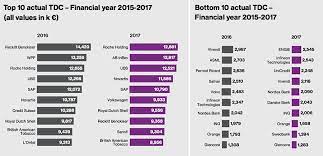Unlocking Success: The Art of Strategic Consultancy
The Power of Strategic Consultancy
Strategic consultancy plays a crucial role in helping businesses navigate complex challenges and achieve their goals. It involves providing expert advice and guidance to organisations in various aspects of their operations to drive growth and success.
One of the key benefits of strategic consultancy is its focus on long-term planning and decision-making. Consultants work closely with businesses to assess their current situation, identify opportunities for improvement, and develop tailored strategies to maximise their potential.
Strategic consultants bring a fresh perspective to the table, often offering insights that internal teams may overlook. By leveraging their experience and expertise, consultants can help businesses make informed decisions that align with their objectives and market dynamics.
Furthermore, strategic consultancy helps businesses adapt to changing market conditions and stay ahead of the competition. Consultants can provide valuable advice on market trends, industry best practices, and innovative approaches that can give businesses a competitive edge.
Effective strategic consultancy also involves collaboration with key stakeholders within the organisation. By engaging with leadership teams, employees, and other relevant parties, consultants can ensure that strategies are implemented successfully and aligned with the overall vision of the business.
In conclusion, strategic consultancy is a powerful tool for businesses looking to enhance their performance, drive growth, and achieve sustainable success. By partnering with experienced consultants who understand the intricacies of strategic planning, organisations can unlock new opportunities and overcome challenges in today’s dynamic business environment.
Seven Essential Tips for Effective Strategic Consultancy
- Understand the client’s business objectives and goals thoroughly.
- Conduct in-depth research and analysis to identify opportunities and challenges.
- Develop a clear and actionable strategic plan with specific recommendations.
- Communicate effectively with clients to ensure alignment and understanding of the strategy.
- Monitor progress regularly and make necessary adjustments as needed.
- Stay updated on industry trends and best practices in strategic consultancy.
- Build strong relationships with clients based on trust, professionalism, and results.
Understand the client’s business objectives and goals thoroughly.
To excel in strategic consultancy, it is imperative to thoroughly understand the client’s business objectives and goals. By gaining a deep insight into what the client aims to achieve, consultants can tailor their strategies and recommendations to align with these specific targets. Understanding the client’s business objectives allows consultants to provide targeted advice that directly contributes to the client’s success. This foundational knowledge forms the basis for developing effective and impactful strategies that drive growth and deliver tangible results for the client.
Conduct in-depth research and analysis to identify opportunities and challenges.
Conducting in-depth research and analysis is a fundamental tip in strategic consultancy. By thoroughly examining the market landscape, industry trends, and competitors, consultants can identify valuable opportunities for growth and potential challenges that may hinder progress. This critical step allows businesses to make informed decisions based on data-driven insights, enabling them to develop effective strategies that are tailored to their specific needs and objectives. Research and analysis serve as the foundation for successful strategic planning, guiding businesses towards maximising their potential and achieving sustainable success in a competitive business environment.
Develop a clear and actionable strategic plan with specific recommendations.
Developing a clear and actionable strategic plan with specific recommendations is a fundamental tip in strategic consultancy. By outlining detailed strategies and providing concrete recommendations, businesses can effectively map out their path to success. This approach ensures that all stakeholders have a clear understanding of the objectives, actions required, and expected outcomes, enabling the organisation to make informed decisions and progress towards its goals with confidence. A well-defined strategic plan with specific recommendations serves as a roadmap for implementation and allows for measurable progress tracking, ultimately leading to better outcomes and sustainable growth.
Communicate effectively with clients to ensure alignment and understanding of the strategy.
Effective communication with clients is a fundamental aspect of strategic consultancy. By maintaining open and transparent dialogue, consultants can ensure that clients are fully aligned with the proposed strategies and have a clear understanding of the direction being taken. Clear communication helps build trust, fosters collaboration, and allows for any potential misunderstandings to be addressed promptly. By engaging in meaningful conversations and actively listening to clients’ needs and concerns, consultants can tailor their strategies to meet specific objectives and drive successful outcomes.
Monitor progress regularly and make necessary adjustments as needed.
In the realm of strategic consultancy, it is imperative to monitor progress regularly and make necessary adjustments as needed. By consistently tracking the implementation of strategies and evaluating their impact, businesses can stay agile and responsive to changing market conditions. This proactive approach allows organisations to identify areas for improvement, seize new opportunities, and ensure that their strategic plans remain aligned with their goals. Regular monitoring and adjustment are key elements in maximising the effectiveness of strategic consultancy and driving sustainable growth for businesses.
Stay updated on industry trends and best practices in strategic consultancy.
To excel in strategic consultancy, it is essential to stay informed about the latest industry trends and best practices. By keeping abreast of emerging strategies and innovations, consultants can offer valuable insights and recommendations that are relevant and effective. Continuous learning and staying updated on industry developments not only enhance the quality of consultancy services but also enable consultants to provide clients with cutting-edge solutions that drive success and competitive advantage.
Build strong relationships with clients based on trust, professionalism, and results.
Building strong relationships with clients based on trust, professionalism, and results is a fundamental tip in strategic consultancy. By fostering trust through transparent communication and delivering on promises, consultants can establish long-lasting partnerships with clients. Demonstrating professionalism in every interaction, from initial consultation to project execution, instills confidence and credibility. Ultimately, by consistently achieving positive results that align with client objectives and expectations, consultants can solidify their reputation as trusted advisors and valuable partners in driving business success.




